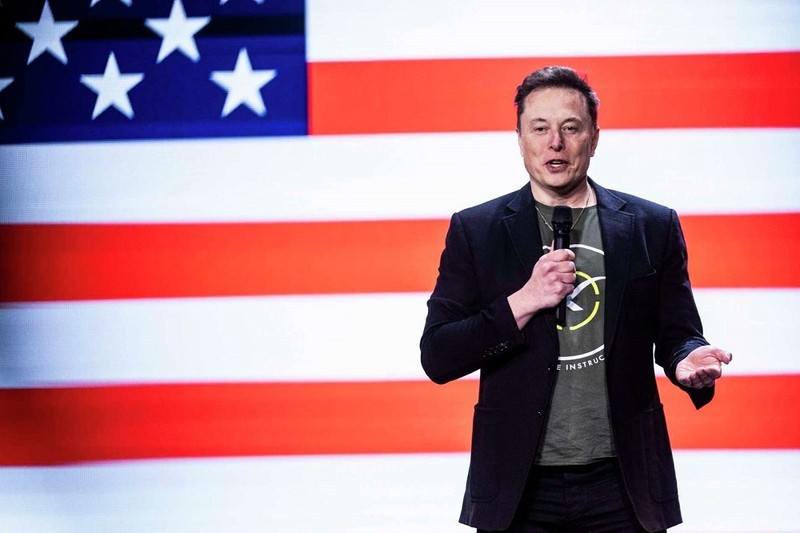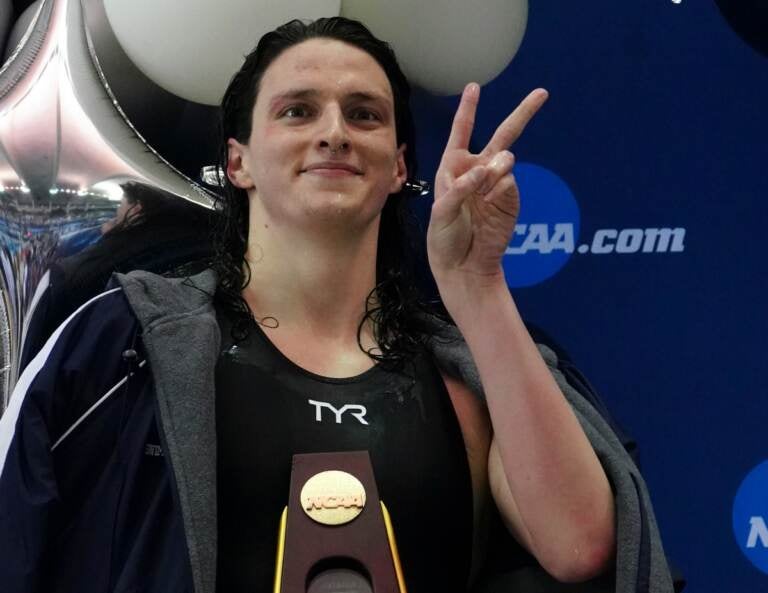
Elon Musk vs. The Woke Olympics — A Battle for the Soul of American Sports
It began, as so many things do these days, with a single tweet that felt like a thunderclap.
“You’ve killed the spirit of competition with your twisted ideology,” Elon Musk wrote. “The woke mob is destroying American sports, one rule at a time.”
The target of his fury was Lia Thomas, the transgender swimmer whose inclusion in women’s competitions had reignited one of the most polarizing debates in modern sports. But Musk didn’t stop there. In follow-up posts, he demanded that Thomas be banned from competing, claiming that “fairness is dying under the weight of forced equality.”

In seconds, his words spread like wildfire — a spark thrown into a field already dry with tension. Within hours, the post had millions of views, and by nightfall, the entire country seemed to be taking sides.
To Musk’s supporters, he was speaking an uncomfortable truth — the truth they believed no one else had the courage to say out loud. To his critics, he was igniting hate, targeting a community already struggling for acceptance. But whichever side you stood on, one thing was undeniable: Elon Musk had once again turned the internet into a battlefield.
The timing couldn’t have been more volatile. The debate over transgender participation in sports had already reached fever pitch following President Trump’s executive order banning LGBT athletes from the 2028 Olympics. Protests filled the streets, athletes spoke out, and corporations cautiously picked their sides. Into that chaos, Musk threw a verbal grenade — and the blast was deafening.
Cable news channels went into overdrive. Commentators called it “the shot heard across the sports world.” Some defended Musk’s stance as a matter of biology and fairness. Others called it hypocrisy — a billionaire tech mogul moralizing about sports he’d never played. But for millions of Americans scrolling through their feeds, it wasn’t about politics or science anymore. It was about identity — and who gets to define the rules of fairness.
In a late-night Spaces session, Musk expanded on his statement, his tone cold and deliberate.
“Look, I support freedom,” he said. “But when freedom starts destroying merit, it’s not freedom anymore — it’s corruption. You can’t change biology with hashtags.”
The room fell silent before erupting with digital applause from listeners who saw him as the last voice of reason in a world gone mad.
But the backlash was immediate and merciless. Activists accused Musk of “dehumanizing trans athletes.” Major sponsors of U.S. sports leagues issued statements reaffirming their commitment to inclusion. Lia Thomas herself responded indirectly, posting: “Competition is about courage, not chromosomes.”

The divide deepened. #StandWithLia and #MuskIsRight trended simultaneously, painting a picture of a nation at war with itself.
Behind the uproar, something more profound was unfolding — a struggle over what the word fairness really means. For some, it was about protecting the integrity of competition. For others, it was about expanding the definition of inclusion. But for Elon Musk, it was about calling out what he saw as a dangerous distortion of both.
He’s no stranger to controversy — whether it’s politics, media, or Mars — but this fight was different. This wasn’t about rockets or algorithms; it was about the human body, human rights, and the rules that hold society together.
By the next morning, Musk’s post had been shared over 20 million times. The Olympic Committee released a cautious statement promising to “review fairness policies.” News anchors debated his words like scripture, parsing every syllable for meaning.

And through it all, Musk stayed unbothered. When a reporter asked if he regretted the comment, he smiled slightly and said,
“You don’t regret calling out the truth. You regret pretending it isn’t there.”
Love him or hate him, Musk had done what he always does — force the world to confront the uncomfortable questions it tries to avoid.
In a time when the lines between fairness and inclusion, courage and correctness, are blurrier than ever, Elon Musk’s words had reignited an age-old question — one that no algorithm can solve:
What happens to the spirit of competition when truth itself becomes controversial?

